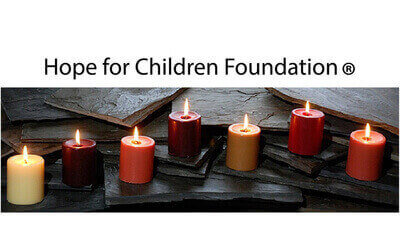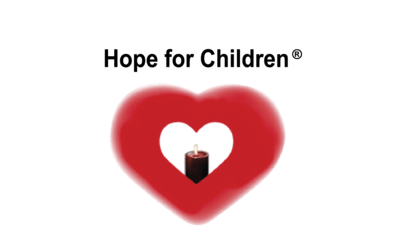Patricia L Hope Kirby President Emeritus
Patricia Kirby Epilogue Hope For Children Conference
Patricia Kirby, President Emeritus, Executive Director & Co-Founder
It’s In Your Eyes It Comes From Deep Inside
I Know You Care I know You’ll Be There
You Hung On Tight When Times Were Tough
I Know That Means So Much
You Are The Reason
Just Look At All That You Have Done
You I Can’t Believe It
Sure As The Rising Sun
It’s In Your Eyes
I Can’t Thank You Enough
Hope For Children Foundation Board of Directors and Our Patrons
Hope for Children Advocating for Children – Written by Randy Noblitt, PhD
Member National Advisory Board Hope For Children Foundation
We all have the job of advocating for children. Sadly, we cannot be assured that all children will be safe from harm. For this reason, there are legal requirements that many helping professionals must serve as mandated reporters of child abuse. When such specialists have reason to suspect child abuse, the law requires that the suspicion be reported to child protective services. However, the duty to advocate for children should not be limited to health care providers and teachers. We must all share this responsibility.
How Can We Advocate for Children?
How can we advocate for children? We can begin in the context of our personal lives by creating an atmosphere of respect for the safety and wellbeing of children along with open communication. We can develop a climate of receptiveness where children know that we welcome their thoughts and feelings, where children know that they can tell us about both their enjoyable and adverse experiences. We can also be outspoken in discussing the welfare of children with others. Each of us can become true children’s advocates in our personal lives.
On a broader level we can support public policies that effectively protect children. We can become more aware of the different kinds of harm that can be inflicted on children to include neglect, emotional abuse, physical violence, and sexual abuse. We also need to recognize that children who are abused or neglected often are reluctant to disclose their experiences of maltreatment.
Robust Findings
One of the most robust findings in the health care literature is on the damaging effects that adverse childhood experiences (ACEs) have on physical and psychological health. The Centers for Disease Control and Prevention (CDC) and Kaiser-Permanente conducted the original ACE research whereby they collected ACE data on 9,508 patients between 1995 and 1997. The original findings showed that ACEs are not rare. According to the authors, “More than half of respondents reported at least one, and one-fourth reported ≥2 categories of childhood exposures” (Felitti, et al., 1998). Another research outcome was that there was a graded relationship between the number of ACEs and the physical and psychological health problems that they studied including shortened life span (Felitti, et al., 1998). Thus, we all need to be mindful that there are significant harmful affects associated with adverse childhood experiences that are likely to impact the future of healthcare outcomes (Felitti, 2017). Because children cannot always advocate for themselves we must take on this responsibility.
References
Felitti, V. J. (2017). Future applications of the adverse childhood experiences research. Journal of Child & Adolescent Trauma, 10(3), 205-206.
Felitti, V. J., Anda, R. F., Nordenberg D., Williamson D. F., Spitz, A. M., Edwards, V., . . . Marks, J. S. (1998). Relationship of childhood abuse and household dysfunction to many of the leading causes of death in adults. The Adverse Childhood Experiences (ACE) Study. Journal of Preventive Medicine, 14, 245-58.

